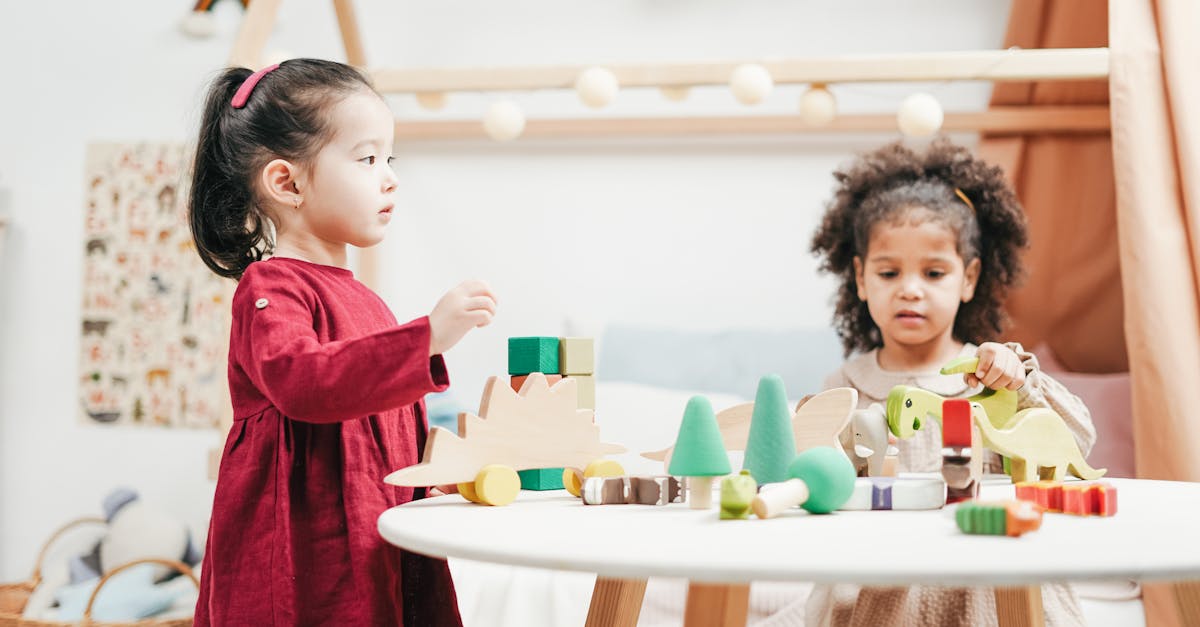What is AI and How it Helps Kids?
Artificial Intelligence (AI) might sound like something out of a sci-fi movie, but it’s here and changing the game in early childhood development. In simple terms, AI involves computers and robots that can learn and solve problems. When it comes to kids, AI can make learning fun and engaging.
Imagine an AI-powered toy that teaches your child to count or even how to say ‘thank you.’ Sounds cool, right? AI does more than just entertain; it helps improve cognitive skills and emotional intelligence. So, let’s dive into how AI is becoming your kid’s new best friend.

Cool AI-Based Toys for Early Learning
Gone are the days of boring, basic toys. Today, we’ve got AI-based toys that are not only fun but educational too! Remember that talking teddy bear you dreamt of as a kid? Well, it’s real, and it’s called a smart toy now. These toys can sing, tell stories, and even teach your child new languages.
For instance, Cubetto is a cute, wooden robot that introduces coding to preschoolers. Then there’s Cozmo, an AI robot that recognizes faces and even expresses emotions. These toys make learning a joyride with laughter and curiosity leading the way!
 Explore the world of AI-based toys and watch your child’s imagination soar!
Explore the world of AI-based toys and watch your child’s imagination soar!
AI Tools for Parents: Simplifying Life
Let’s face it; parenting is hard work! But guess what? AI tools are here to lend a hand. From baby monitors that analyze sleep patterns to apps that suggest developmental activities, AI has got you covered.
Take the Smart Sock by Owlet, for example. It tracks your baby’s heart rate and oxygen levels, sending real-time data to your phone. Or how about Lina, the AI-based parenting assistant that answers any baby-related question within seconds?
These tools simplify your life, giving you more time to enjoy precious moments with your child.

Addressing Emotional Challenges with AI
Parenting isn’t just about teaching; it’s about understanding emotions too. Kids have meltdowns, and sometimes, so do we! AI can help in managing these emotional hurdles. Tools like the Miko robot use AI to recognize your child’s mood and respond accordingly. If your child seems upset, Miko tells a funny joke or plays a happy song. There are also apps designed for parents that offer useful tips for handling tantrums and stress. So, while AI helps with educational development, it also supports emotional well-being, making life smoother and more enjoyable for everyone.

AI technology not only enhances education but also contributes to emotional support for children and parents alike.
The Future of AI in Early Childhood Development
The future of AI in early childhood development holds amazing possibilities. Imagine classrooms where children interact with AI companions that tailor learning experiences to individual needs. With advancements in AI, we can expect even greater educational tools and toys that evolve with your child. AI is also likely to offer new ways for parents to track developmental milestones and intervene early if issues arise. While some may worry about too much screen time, balanced use of AI can actually enhance social interaction and cognitive development. It’s not just a trend; it’s the future, and it looks bright!

Join us in shaping the bright future of early childhood education with AI!
Related Posts:
- AI’s Promise in Reinventing Early Learning
- AI in Early Learning: Preparing Kids for the Future
- Improving Learning with AI
- Fostering Creativity and Critical Thinking with AI
- AI Impact on Teaching & Learning for Preschoolers
